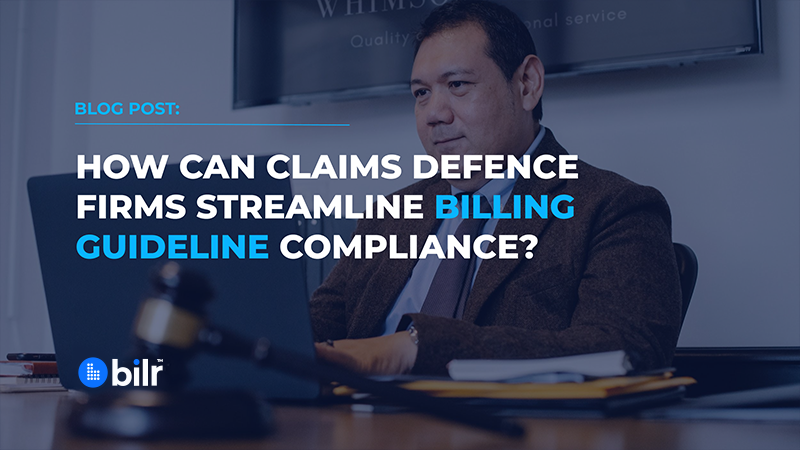In recent years, insurers have been attempting to decrease cost and increase efficiency throughout their operations, including the processes for engaging outside counsel. However, claims defense firms have struggled to keep up with the requirements stemming from a growing number of billing guidelines and increased invoice review scrutiny. As a result, the once symbiotic relationship between the two has become more strained.
Legal bill review is a source of stress for claims defense firms. A review where billing issues are found can lead to reduced and removed line items, drastically affecting law firms’ profit margin. In fact, our data tells us that between 6-11% of claims defence firms’ revenues are reduced by insurers’ legal bill review.
Issues found by insurers’ bill reviewers are typically from inaccurate task descriptions, improper or duplicate time entries, and the inclusion of inappropriate administrative tasks, depending on the billing guidelines a claims defence firm has with their insurer client(s).
According to an Associated Press news article, claims defence firms appear to be firmly against legal bill review. The article explains that claims defence firms tend to accuse insurers of having a hidden agenda when it comes to carrying out bill reviews.
Claims defence firms are under the impression that insurers carry out bill reviews for the sole purpose of reducing cost. However, the article gave a vote of confidence to lawyers, stating that “many of America’s lawyers keep scrupulous time records, work as efficiently as possible and never inflate charges.”
On the other hand, Paula-Jane Seidman summarized the perception of insurers in her work titled “A Continuing Crisis: Casualties on Both Sides in the Unholy War Between Insurers and the Defense Bar Over Issues of Staff Counsel, Legal Audits and Billing Guidelines in Insurance Law: Understanding the ABCs”, stating:
“When insurers and other consumers of legal services first began to look closely at the attorneys’ fees and costs for the services for which they have been paying, they frequently became distressed by what they saw. In fact, what they discovered oftentimes shook their confidence. In many instances, they uncovered evidence of overstaffing, duplication of effort, hidden profit centers, lack of direction, unreasonable charges and simple inefficiency.
As a result, these consumers began to carefully examine the legal fee invoices, staffing levels, and the method of compensation for the services provided. Clients began to view the billable hour as a method of compensation which provided a disincentive for attorneys to dispose of cases quickly and efficiently.”
The Nature of Billing Guidelines
Billing guidelines imposed by insurers come in all shapes and sizes. Some of the more prominent guidelines typically found include:
- Display the composition of the litigation team for a specific matter. Insurers only want to make payments for the work done by the litigation team.
- Qualified professionals must work on a legal file. However, most guidelines hold that the lowest designated role works the file to contain legal costs, e.g. ensuring partners don’t do paralegal work.
- Insurers require law firms to track time while working on case assignments. Each task must have specific time entries that should be accompanied by UTBMS codes. They should not have any ambiguous descriptions.
- Defense counsel are expected to make budget submissions for every litigation stage. Expenses that are in excess to the submitted budget are likely to be rejected. Insurers' approval is necessary where excess expenditure has been made.
- Time taken to conduct research is no longer considered billable. However, with the insurers' approval, law firms can receive payments for conducting legal research.
- Travel time and intra-office conferences are not counted as billable time.
- Billing guidelines do not take into account overnight delivery charges, proof-reading and revisions. Long distance telephone calls and unapproved trial preparations are excluded too. Deposition appearances might also remain unaccounted for.

Billing guidelines do not need to come at the expense of law firms' operational efficiency. The latest lawyer-side e-billing solutions are powered by artificial intelligence (AI) and machine learning (ML). Claims defence firms can use this technology to ensure invoices are compliant to billing guidelines before submitting it into the insurer’s e-billing system.
Bilr — our e-billing solution — uses AI/ML to review invoices on behalf of claims defence firms. This technology can automatically scan legal invoices, flagging errors to fix just like insurers do in the legal bill review process. This enables firms to correct their invoice prior to submission, ensuring faster payments and absolute compliance to billing guidelines.
Insurers usually find and flag erroneous and non-compliant line items. E-billing solutions, specifically Bilr, can eliminate these errors in their entirety.
AI/ML technology has brought forth a new era for legal billing, with easy capture of UTBMS codes and creation of LEDES invoices coupled with automatic review of invoices for compliance. Bilr reduces instances of unbilled and/or wasted time, improves compliance to billing guidelines, and increases revenue, speed of payment and client satisfaction.
Want to try Bilr for yourself and see what it’s all about? Start a 14-day free trial, or request a demo from a member of our sales team.



